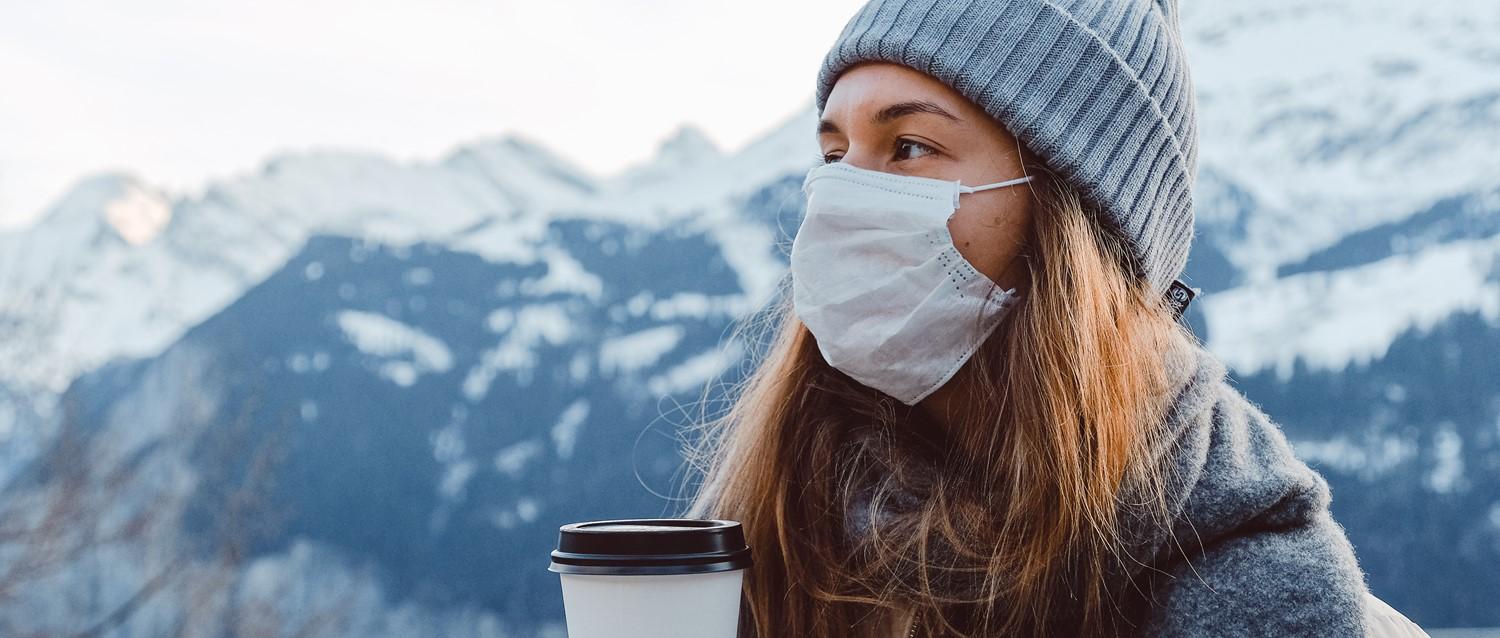
Can you catch a cold in summer?
Peer reviewed by Dr Hayley Willacy, FRCGP Authored by Dr Sarah Jarvis MBE, FRCGPOriginally published 1 Jul 2019
- HerunterladenHerunterladen
- Teilen Sie
Teilen Sie
Whenever summer starts, I get a steady trickle of patients with colds, all perplexed because 'colds aren't supposed to happen in summer'. I wish it were that simple - they may be more common in winter, but cold viruses are out there waiting to strike all year round.
In diesem Artikel:
Lesen Sie unten weiter
Why do colds still happen in summer?
As a medical student, I was taught that colds and flu are more common in winter because people crowd together indoors during cold weather. That's certainly part of the explanation - the average child 'sheds' virus for 11.4 days and the average adult 10.1 days after a cold. Since viruses are picked up either from breathing in when someone sneezes, or by touching a surface someone has sneezed on to and then touching your eyes, mouth or nose with your hands, close contact makes for more infections.
However, cold weather can be replicated in summer by air conditioning or enthusiastic use of fans, and temperature may be a separate culprit. Your first line of defence against viruses like colds is the lining of your nose, eyes and mouth (your mucous membranes). We now know that cold air can inhibit your body's ability to activate white blood cells in the area to stop the viruses invading. Also, air conditioning dries out the air, which in turn dries out the mucous membranes. This can lead to cracking and make it easier for viruses to sneak through.
Patienten wählen aus für Virale Infektionen

Infektionen
Should you wear a face mask if you have a cold this winter?
Wearing a face mask has become common practice for many of us throughout the pandemic. Wearing face coverings in indoor spaces has helped reduce the spread of COVID-19, but they are now worn less as vaccines have been rolled out and masks are no longer a legal requirement. But as winter approaches and people start to catch colds, could keeping our masks on help us stay well?
von Emily Jane Bashforth

Infektionen
Respiratorisches Synzytialvirus (RSV)
Respiratory syncytial virus (RSV) is a common infection which usually causes mild cold-like symptoms but can be more serious especially for babies, toddlers, and older people. Here we explain what causes it, what its symptoms are, and how it is treated.
von Dr. Doug McKechnie, MRCGP
How long is recovery from a cold?
There are over 200 viruses that can cause colds, and it's actually not uncommon to be infected with more than one at the same time. The 'average' time it takes to get over a cold is seven to 10 days - but if they overlap, it may be longer.
Symptoms include blocked or runny nose, sneezing, and mild fever (below 39°C), with a cough from the 4th or 5th day, as sneezing improves. Unlike influenza, you can usually struggle on with a cold. Coughs and sneezes really do spread diseases - use a paper hanky to cover your mouth and nose and bin it once used.
Lesen Sie unten weiter
How do colds differ from the flu?
Playlist: Erkältung vs. Grippe
2 Videos
Was ist eine Erkältung?
Dr. Roger Henderson, MBBS
Was ist eine Erkältung?
Dr. Roger Henderson, MBBS

Was ist Influenza?
Dr. Roger Henderson, MBBS
Although flu is a virus (the influenza virus), it's a very different illness from the average cold. For a start, although you get similar symptoms, they're much more severe - there really is no such thing as 'a touch of flu'! You'll usually feel achy all over, including in muscles you didn't know you had.
A fever above 39°C or even 40°C is standard, and you'll almost certainly be too weak to get out of bed for several days. You're likely to have a dry racking cough, headaches and fluctuating between boiling hot and freezing cold. At certain times of year, GPs are given the go-ahead to prescribe Tamiflu, which may shorten your symptoms by a couple of days, but it's no miracle cure. You'll probably feel weak for days or even weeks after you're over the worst of it.
What to do if you have a cold
Because colds and flu are caused by viruses, antibiotics will be completely useless. On the whole, I strongly advise my patients to steer clear of my surgery - I won't be able to help and it's full of other patients with germs they can catch! Sometimes, however, you can get a bacterial infection superimposed, or infection deeper in your airways.
If you get shortness of breath, coughing up blood or a sharp, stabbing pain in your chest when you breathe (rather than just when you cough), see your doctor. If you have asthma, getting a cold can worsen your symptoms, so take the advice you've been given about upping your inhalers and be prepared to see your doctor. Likewise, if you have long-term health conditions like the lung condition chronic obstructive pulmonary disease (COPD), you're more prone to bacterial infections, so speak with your doctor.
Lesen Sie unten weiter
How can I prevent flu or treat it?
The flu injection is highly effective at preventing serious complications from flu, and cuts the risk of you getting it in the first place. The new season's vaccines are available from the first week in October, and you need one every year because there are several different strains of flu and last year's vaccine may not protect you. If you're over 65, a child, a carer or have a chronic health condition, do take up your invitation.
Keeping your fluid intake up and taking regular painkillers for aching or sore throats are both important. Your pharmacist has lots of options for relieving your symptoms - they'll be able to advise on whether a dry or chesty cough mixture is best, vapour rubs to clear a blocked nose or lozenges to soothe your throat. They may also suggest decongestants, which last a few hours but shouldn't be taken for too long as they may make matters worse when you stop them. Lots of cold viruses can live on once sneezed out on door handles and surfaces. Regular hand-washing could save you sneezing.
Cold prevention - myths vs facts!
There are dozens of remedies that claim to prevent colds and flu, but the evidence for most of them is sketchy. There is good evidence that a healthy diet and regular exercise can protect you. Zinc (your pharmacist can advise on supplements or lozenges) may speed your recovery if you start it within 24 hours of getting symptoms, and there's a small chance that taking it regularly over winter might mean fewer colds in the first place.
Scientists who've looked carefully at studies of vitamin C and echinacea say there is 'limited' (ie weak) evidence they might improve symptoms or help you get over a cold. The same applies to Koloba, a herbal remedy from the plant Pelargonium sidoides, a member of the geranium family. Garlic and cloves are popular but, while they may taste good, there's no evidence they help.
Mit Dank an die Zeitschrift "My Weekly", in der dieser Artikel ursprünglich veröffentlicht wurde.
Artikel Geschichte
Die Informationen auf dieser Seite wurden von qualifizierten Klinikern geprüft.
1 Jul 2019 | Originally published
Verfasst von:
Dr. Sarah Jarvis MBE, FRCGPPeer-Review durch
Dr. Hayley Willacy, FRCGP

Fragen, teilen, verbinden.
Stöbern Sie in Diskussionen, stellen Sie Fragen, und tauschen Sie Erfahrungen zu Hunderten von Gesundheitsthemen aus.

Fühlen Sie sich unwohl?
Beurteilen Sie Ihre Symptome online und kostenlos